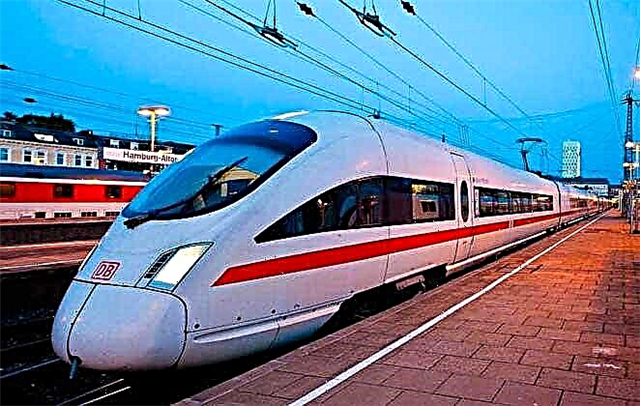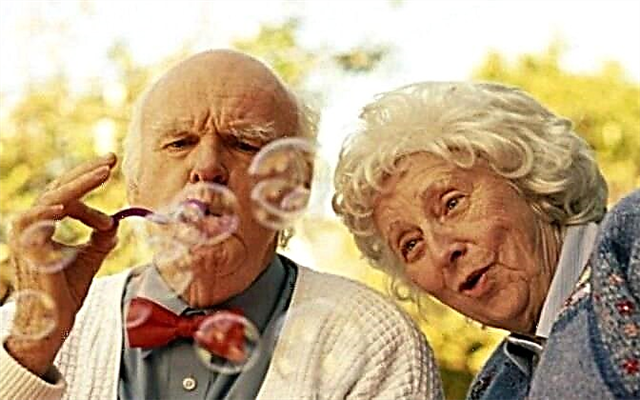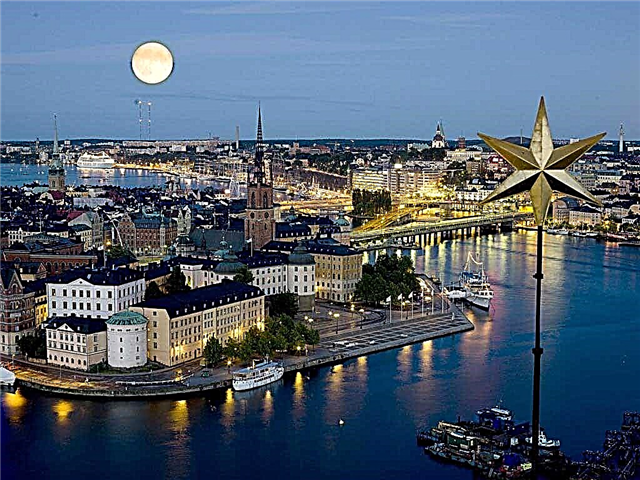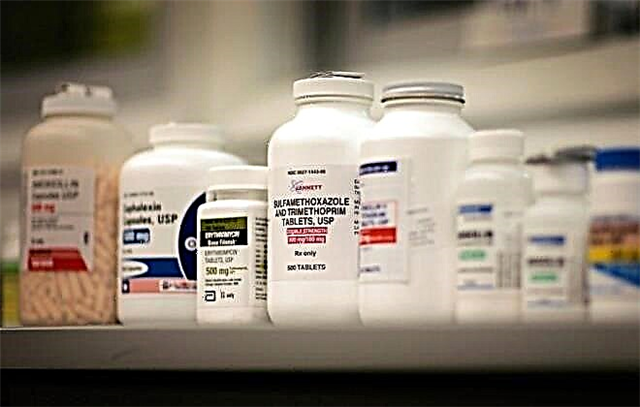One of the important assets of China are recipes for healing, prolonging life, preserving beauty and longevity, proven over millennia. Chinese pharmaceuticals today are a combination of Eastern wisdom based on secrets peeped from nature, knowledge of civilization and Western technologies. Therefore, medicines from China are of unprecedented interest in the modern world.

A little about the pharmaceutical industry in China
The rudiments of Chinese pharmacology appeared in the primitive order. The science of healing was built on the idea of doctors of those times that a person is a symbiosis of five elements: metal, fire, wood, earth and water.
Chinese doctors are also sure that the body includes two principles - passive yin and active yang. The loss of balance between them is the cause of disease.
To understand what medicines to bring from China, you need to delve into history and understand their origins. Treatment of ailments in ancient China was carried out with the help of medicines of plant and animal origin, stones. The arsenal of various means was significantly influenced by the diversity of the country's natural landscapes.

The most important source of information about herbs was the herbal treatise compiled by the ruler Shen Nun. The book contains a description of 365 medicines.
Shen Nun divided the list of all medicines into three groups:
- having a rejuvenating effect - non-toxic, can be taken by a person without any restrictions and dosages;
- having a tonic effect - for them the dosage and duration of use should be prescribed by a doctor;
- poisonous - have a healing effect only with a certain dosage and short-term use.
Other famous treatises include:
- "The Book of the Inner", which appeared in the III century BC. NS. and later became the canon of traditional Chinese medicine.
- "Shen-nong-ben-tsao-jing" is the world's first pharmacopoeia, published at the initiative of the Chinese government in 502. The book describes about 730 plants used in medicine.
Plants such as ginseng, lotus, fern, ginger, Indian hemp, dandelion, plantain, lemongrass are widely used. Doctors also used tin, antimony, salt, lead, silver, copper, mercury, tree bark, organs and body parts of animals.
Who manufactures medicines in China
 Today, the PRC has the largest pharmaceutical production capacity on the planet. It is here that about 4,500 Western drugs are produced in more than 60 dosage forms.
Today, the PRC has the largest pharmaceutical production capacity on the planet. It is here that about 4,500 Western drugs are produced in more than 60 dosage forms.
In addition, it is in China that about 90% of the substances that are used for the manufacture of medicines are produced. In particular, this state is a leading supplier of acetylsalicylic acid, vitamins, some antibiotics and metamizole (analgesic).
Everything that the pharmaceutical industry in China produces is highly competitive. This is due to a number of reasons:
- low cost of the production process;
- cheap labor;
- low energy costs;
- lack of harsh laws regarding environmental safety, which makes production cheaper.
The country's authorities are loyal to the creation of joint ventures, which in most cases produce generics - inexpensive analogues of original drugs. This influences the formation of the list of what medicines tourists bring from China.
After China's accession to the WTO, foreign drug manufacturers began to enter the local market. The largest among them are:
- Johnson & Johnson (USA) - appeared in China in 1985. Today it has five branches in the country.
- F. Hoffmann-La Roche Ltd (Switzerland) - opened a subsidiary in the Chinese territory in 1994.
- Astra Zeneca (Great Britain) - it has 25 representative offices in China.
- Bayer Schering Pharma (Germany) - has 4 divisions.
Domestic pharmaceutical companies occupy about 73% of the Chinese pharmaceutical market. Leading manufacturers include:
- China National Pharmaceutical Group Corp. - specializes in the production and sale of finished products, medical research.
- Shanghai Pharmaceutical Group of corporations has a full-cycle production base, a wide chain of distribution companies that wholesale and retail medicines.
- The Beijing Pharmaceutical Company is the largest enterprise in North China, which produces medical equipment, medicinal substances, TCM (traditional Chinese medicine) preparations, dietary supplements (dietary supplements).
The largest include the Guangzhou holding, which is engaged in the production of Western and Chinese pharmaceutical products, and the Tianjin group of companies, which produces medical devices, TCM drugs and substances for the production of various drugs.
Varieties of Chinese drugs
 Medicines from China are of organic origin and have no contraindications. In addition, they do not cause side effects and have an effective effect on the human body.
Medicines from China are of organic origin and have no contraindications. In addition, they do not cause side effects and have an effective effect on the human body.
These include:
- Medical plasters. This group of medicines has a complex formulation, but is known for its ease of use. Due to its reliable adhesion to the skin, the drug can have a healing effect for several hours. Such dressings have replaced ointments and elixirs, which are impossible and inconvenient to apply for a long time. To influence the internal organs, it is enough to stick the plaster on the projection area on the body. There are a lot of types of plasters:
- Antioxidants are one of the many groups. They affect metabolism, cleanse the blood, remove toxins, strengthen the body, increase immunity, help fight colds and flu, coughs.
- Orthopedic - recommended for diseases of the spine and joints, for rheumatism and osteochondrosis.
- Vascular - their effect is aimed at treating vasculitis and varicose veins, cleansing blood vessels from cholesterol;
- Painkillers are practically a pocket remedy in China that can be used for all types of pain.
- Cardiovascular - used for heart disease, blood pressure disorders.
- Renal - indicated in the presence of stones in the kidneys and gallbladder, diseases of the genitourinary system, liver and bile ducts.
- Against skin diseases - prescribed in the presence of psoriasis, acne, rosacea and other skin lesions.
- Cordyceps preparations - Cordyceps sinensis (Chinese cordyceps) is a fungus, an insect parasite. Preparations based on cordyceps are easy to digest, have no side effects, and have no contraindications. They are prescribed to restore the cellular functions of various organs and the body as a whole.
- Medicinal pillows are popular Chinese medical products, the action of which is based on the absorption of nutrients through special points into the skin and mucous membranes. The composition of the pillow is determined by the disease. For example, buckwheat husks and silkworms help to tone the body, beans are effective against dizziness and sunstroke, white chrysanthemum, mulberry leaves and cassia seeds help with eye diseases.
- Pills. The main component of this group of drugs is almost always raw materials of animal or vegetable origin. Most often, wormwood, lily, chrysanthemum, Japanese ardisia leaves are used in China. Due to their natural origin, these drugs have no side effects and do not cause intolerance or addiction, but they can cause allergies.
We make a Chinese first aid kit
It is not easy to search for analogues of Russian medicines in China. The reason is not only that the name is difficult to read and understand. In the pharmaceutical industry of the PRC, the active substances to which Russians are accustomed are little used. Therefore, it will be useful to know what exactly you need to ask in pharmacies.
Basic medicines
 The basis of any first-aid kit must necessarily include funds that will help to cope with disinfection, cuts, wounds, and suppurations. For these purposes, you may need:
The basis of any first-aid kit must necessarily include funds that will help to cope with disinfection, cuts, wounds, and suppurations. For these purposes, you may need:
- Chlorhexidine - 氯 己 定
- Rubbing alcohol - 医用 乙醇
- Hydrogen peroxide - 过 氧化 氢
- Adhesive plaster - 创可贴
- Bandage - 绷带
- Vata - 棉花
- Elastic bandage - 弹性 绷带
- Iodine-soaked cotton balls for minor cuts and wounds - 碘伏) 消毒 棉球
- Iodine - 碘伏
- Potassium permanganate - 高锰酸钾
- Valerian - 缬 草 属, 昆仑 雪 菊
- Alcohol solution for disinfection - 消毒 酒精
Remedies for gastrointestinal problems
The first thing that a tourist can comprehend in China is digestive problems associated with a change in the usual diet and a desire to try everything that the local cuisine is famous for.
If you are planning to buy Chinese medicines online or if you want to purchase the necessary medicines directly on the spot, be sure to consult with your gastroenterologist in advance.
For colic, diarrhea, constipation, flatulence, irritable bowel syndrome, you can purchase the following medicines:
| Drug name | Chinese name | Price in USD |
|---|---|---|
| "Espumisan" caps. 40 mg No. 50 | 马来 酸 曲 美 布汀 片 | 3.72 |
| Pancreatin, tab. 250 mg No. 60 | 姨 酶 制剂 | 3.72 |
| "Dufalak", syrup 200 ml | 乳 果糖 口服 溶液 | 5.66 |
| "Imodium", caps. 2 mg No. 6 | 易 蒙 停 | 1.49 |
| "Smecta" suspension bag 3 g No. 30 | 思 密 达 | 2.98 |
In addition, the following drugs can be purchased (prices for Chinese drugs are indicated in US dollars):
- capsules for the gastrointestinal tract "MEVO" (No. 50) - 45-46;
- granules "Tsinilidan" for gastritis package 10 mg No. 6 - 5-6;
- Chinese glycerin enemas (for constipation) 1 enema 20 ml - 12-13;
- tablets for worms Albendazole Tablets 250 mg No. 24 - 9-10;
- Tibetan pills for the treatment of the stomach and gallbladder "Shiwei Heibingpian" 250 mg No. 180 - 15-16;
- elixir "Cordyceps" to strengthen immunity and prevent gastrointestinal diseases, syrup, 1 ampoule 30 ml, No. 5 - 37-38;
- tea "Sanju Weitai" for the pancreas and stomach, package 20 g No. 6 - 11-12.
How to treat colds and flu
 Influenza and colds are among the most common diseases that can be contracted while traveling. They usually proceed with a high fever, cough, runny nose and sore throat. Therefore, it is best to go to the pharmacy with a pre-prepared list:
Influenza and colds are among the most common diseases that can be contracted while traveling. They usually proceed with a high fever, cough, runny nose and sore throat. Therefore, it is best to go to the pharmacy with a pre-prepared list:
- paracetamol with remantadine - $ 2-3;
- throat spray - $ 3-4;
- lollipops for a sore throat (for example "Strepsils") - $ 1-2;
- gargle solution - $ 2-3;
- coughing syrup - $ 2-3.
According to the reviews of those who have already used these drugs, syrups and lozenges work the fastest. But with solutions for gargling, you need to be extremely careful. Most often they are very concentrated.
Other cold medicines in China:
- elixir "Shuang Huang Lian" (has an immunostimulating effect, has an antiviral effect) - $ 10-11;
- pills "Wei C Yingyao with vitamin C" (reduce fever, remove toxins) - $ 20-22;
- BSK nasal spray with nanosilver ions - $ 5-7;
- antipyretic drug for children "Feynin Caly" - $ 7-9;
- pills for cleansing the lungs "Yang Ying Qingfei" - $ 7-9;
- capsules "Golden Cordyceps" to strengthen the immune system - $ 26-28.
If necessary, you can buy Chinese medicines online. All of these drugs are commercially available.
Beauty products
Special attention should be paid to preparations designed to maintain the beauty and general condition of the body, body, skin and hair care. This includes cosmetics based on pearl dust, and various dietary supplements, oils, drops and other products.
If there is no way to get to one of the famous resorts of the island of Hainan, where the best sanatoriums with thermal springs, offering extensive rejuvenation programs, are concentrated, you can buy the necessary drugs on the Internet.
Naturalness is the hallmark of Chinese cosmetics and other medicines. But it is worth remembering that a lasting effect is possible only if they are used for a long time.
Chinese online medicine stores offer a wide range of items:
- shampoo "101" against hair loss, based on ginseng - $ 21-25;
- elixir for hair growth "Yangxue Shengfa" - $ 13-15;
- cream "Xin Fumanling" for the treatment of demodex (subcutaneous tick) - $ 9-11;
- cream "Manting" for the treatment of acne and acne - $ 18-20;
- Qian Di set for whitening skin, removing freckles, age spots - $ 7-9;
- face cream with cordyceps "Whitening" - $ 15-17.
Band-aids for weight loss are in great demand, for tightening the area of the thighs and arms. The cost of such funds is $ 2-3 per patch.
Medicines for women
 Pharmacies in China can always offer products individually for men and women:
Pharmacies in China can always offer products individually for men and women:
- medical tampons Clean Point Bang De Li ($ 14-17) help with cervical erosion, inflammatory processes, cystitis;
- "Yuichun" tablets "Hello, youth" increase the activity of the ovaries - $ 37-40;
- female stick "Yujinsiang" eliminates the consequences of labor, helps to reduce the walls of the vagina - $ 23-25;
- capsules that help during menopause, "Gengnyanyan" - $ 5-7;
- pills "Tiaojin Suyuan Wang" (infertility treatment) - $ 11-14;
- plaster for pain during menstruation "Tongjing Baojian" - from 2 dollars.
The composition of these preparations includes substances of animal and plant origin: turpentine oil, camphor, scorpion particles, black-tailed snake, raspberry, dodder, turtle shell, herbaceous peony root and others.
In this regard, many people have a question whether these medicines are homeopathic. But if you take into account the complex technological process of their production and the effectiveness of the action, you can not be afraid to get not what you expected.
Medicines for men
The assortment of medicines for men is no less diverse. To maintain men's health, the following are suitable:
- pills "Hui Zhong Dan": increase potency, help solve problems with the genitourinary system, treat prostate adenoma - $ 41-43;
- strengthening pills "Mai Dalivan": tone up the kidneys, increase sperm secretion, increase the size of the penis - $ 27-29;
- pills "Jianshen Quanglu": strengthen men's health, treat insomnia and memory impairment - $ 23-25;
- pills for inguinal hernia "Ji Sheng Ju He Wan" - $ 11-13;
- pills for the extension of the genus "Wuji Yanzong": normalize hormonal levels, improve the function of the adrenal glands and kidneys, improve the quality of sperm - $ 10-12.
A little about vitamins
Chinese pharmacists pay special attention to vitamin complexes that help maintain the organs and systems of the human body in a resourceful state. The most popular brand in China, producing vitamin complexes, is considered "Gift of Nature" (Chinese: 自然 之 quet - zìrán zhī bǎo).
In addition, you need to pay attention to:
- vitamin complex "Calcium, magnesium, vitamin D", which strengthens bones and teeth, supports heart function, regulates blood sugar - $ 16-18;
- capsules "Pearl powder", enriched with selenium (improving brain function, strengthening bones, preventing premature aging) - $ 17-19;
- capsules "Ginseng and deer antlers", which have a tonic effect, improve memory, relieve stress, depression, insomnia - $ 25-27;
- capsules "Chitosan" (strengthening the immune system, removing toxins, losing weight) - $ 26-28.
To increase mental abilities, preparations based on pearls are suitable, and to normalize the functioning of the endocrine system, you can buy products based on sheep placenta.
What else to bring from China
 You can order medicine from China for any disease. Here is just an incomplete list of what TCM fans are still interested in:
You can order medicine from China for any disease. Here is just an incomplete list of what TCM fans are still interested in:
- colchicine pills for gout - $ 5-7;
- capsules for rheumatism "Quanse Shei" based on the components of a snake, an ant and a scorpion - $ 12-14;
- anesthetic plaster reinforced "Zhuifeng" - $ 6-8;
- elixir "Xiao Shuang" against blood clots - $ 11-13;
- the drug for stroke "Naolotong Jiaonan" - $ 10-12;
- sedative pills "Ershiwei Chenxiang" - $ 28-30;
- oil based on Japanese frog caviar (for vessels) - $ 48-50;
- capsules "Shuya" (protection of the brain and heart) - $ 16-18;
- "Fufan Banmao" - capsules to fight cancer - $ 20-30;
- Xiaoke Pills tablets for kidneys and genitourinary system - $ 10-25;
- Minglian allergy ointment - $ 4-6;
- capsules for joints "Gutszekan" - $ 13-15.
Take a sociological survey!
[yop_poll id = ”5 ″]
How Chinese medicines are tested
The body of the PRC that oversees the quality of pharmaceutical products is the CFDA - China Food and Drug Administration. The list of powers of the department includes registration of enterprises, quality control of drugs and their release into circulation.
The main document that guides the General Administration is the Federal Food Drug and Cosmetic Act. It contains the following rules:
- product turnover;
- GSP certification (Good storage practices for pharmaceuticals);
- licensing;
- marking;
- package.
According to the law, companies that produce medicines are required to have a GMP certificate, which indicates that all production processes comply with the requirements of the standard of the same name. The Good Manufacturing Practice standard was adopted in 1969 at the World Health Assembly - these are the rules for the production and quality control of drugs.
Companies that sell drugs must have a GSP certificate confirming the availability of storage capabilities for pharmaceutical products.
How to buy the drug you need at the pharmacy
There are three types of pharmacies in the PRC:
- traditional European format;
- departments with traditional medicine products;
- departments with goods TCM.
In any of them you can find all types of goods, but the quantitative ratio of products will be different. In large cities, the formats of pharmacies familiar to Europeans are widespread. In the province, the population trusts more the folk and traditional medicine of China.
The pharmacy business in the country is focused on consumers, including foreign ones. For this reason, some prescription drugs in Russia can be bought here without it, such as antibiotics. First, however, the buyer will be offered TCM medications, and then they will sell the goods he asks for.
There are almost no 24-hour pharmacies, but you can buy medicines at pharmacies at hospitals that work 24/7. Almost every pharmacy has so-called assistants - consultants who help determine the drug. But for their service you will have to pay about 20% of the check amount.
Ordering medicines from China by mail, for example, from Sanya or Fuzhou, is not a problem. Many pharmacies have offices in Russia, and therefore you will have to pay for delivery only within the territory of the Russian Federation.
Export of medicines from China
 The Chinese rules for the import and export of certain goods are rather confusing. In theory, there are not many export bans. But in practice, you will have to face the fact that you need to go through some customs procedures and stock up on special documents.
The Chinese rules for the import and export of certain goods are rather confusing. In theory, there are not many export bans. But in practice, you will have to face the fact that you need to go through some customs procedures and stock up on special documents.
It is possible to transport medicines across the border, but you must have receipts for their purchase with you. It is important to remember that drugs should be worth no more than 300 RMB (about $ 50). And it would be nice to have a doctor's prescription with you regarding taking certain medications.
It will not be possible to take out narcotic substances and preparations containing them. But you need to be careful when entering your country: Chinese medicines may contain substances that are prohibited in your home country.
Therefore, although the delivery of drugs from China by courier will cost more, transporting them across the border will not be your headache.
A Few Tips
What those who have already made purchases of medicines in China advise:
- Body, hair and skin care products are often sold as aerosols. Pay attention to this on a return flight - some Chinese airlines do not allow the carriage of such containers, even in baggage.
- When buying popular pharmaceutical products, you need to beware of counterfeits. Always check the license of the point of sale where you shop.
- Check with your pharmacist about the rules for using medications. Many of them involve some dietary restrictions and a special diet.
Outcomes
Chinese-made medicines can be bought directly in China or ordered online. TCM products are made on the basis of natural ingredients of animal and plant origin, although traditional medicines can also be found. Preparations for maintaining women's and men's health, vitamins, ointments, and plasters are in special demand.











